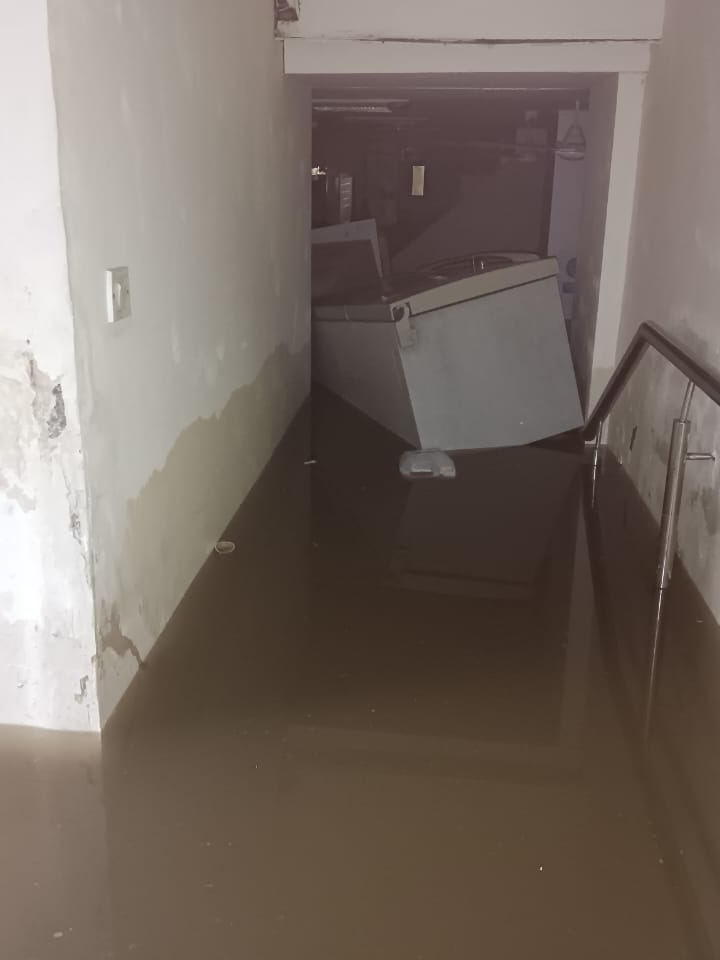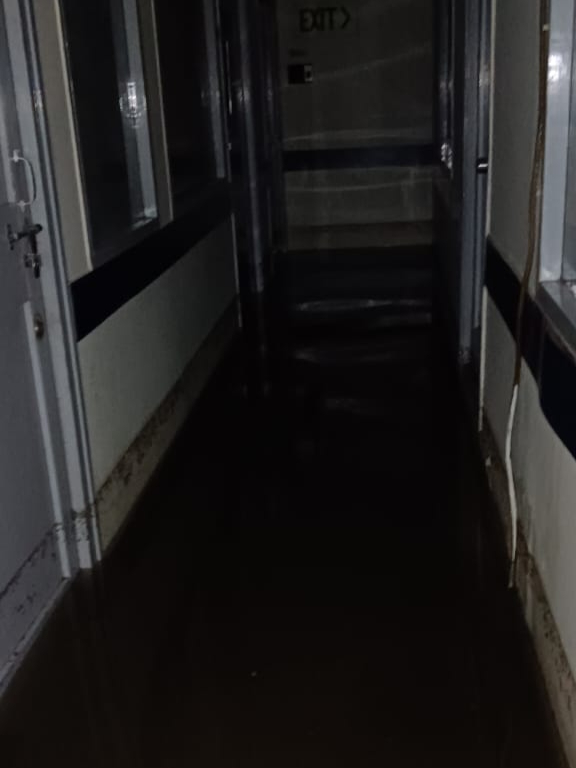5 hours of rain– or was it 6? - Op-Ed
- BSP

- Jul 2, 2024
- 5 min read
Updated: Jul 3, 2024
A tale of when freezers float at this Institute of Eminence

This is not a journalistic piece that starts with "June 28th saw very heavy rains in parts of the National capital for a few hours in the early morning." This article does not aim to determine the reason behind what went down. This is a plea, a cry, a sob for attention, or call it what you will.
When the rains poured over the campus, a wall in IIT fell—the world found out. But, when several labs in multiple departments were in neck-high or waist-high waters, most decided to go on as usual without batting an eye. Yet, over a hundred PhD students and several professors lost either years of work or lakhs of equipment and reagents in all but a night as water flooded labs across several departments in IITD (including the Kusuma School of Biological Sciences, Dept. of Chemical Engineering and the Dept. of Biotechnology & Bioinformatics). Not quite the pleasant Friday morning most had hoped it would be!

At around 8.30 on Friday morning, several students and faculty made their way through the metro gate, only to see the stairs to KSBS from the metro side flooded. The KSBS quadrangle and all ways leading to KSBS were submerged, as was the department's reception. Only after 1.5 hours did the students and staff finally enter the department (at 10 AM) through a door that opened to the men's washroom on the first floor from Block I.
Upon entry, it was found that several freezers had started floating and the ground floor, including the equipment room that houses several liquid nitrogen tanks and deep (-80°C) freezers, was almost one and a half feet underwater. Most, if not all, deep freezers were beeping due to falling temperatures. Later that day, when the water levels finally receded, every corridor had lines indicating the water levels. Yet, the basement was unreachable, with tables, fridges, and freezers all in disarray and some of them still floating.
Some faculty and students, unable to see their samples and important reagents go to waste, went into chest-high waters to retrieve stuff. Yes, although the water contained backflow from sewage and covered the area where all hazardous waste in the department was discarded.
Some may think this was a foolish move, but those losing years of lab records, data, and work, there was nothing else they could do. To put things into a better perspective, imagine you're a final-year PhD student working on a project for four years. Even though you're months away from completion, you have made significant progress in the last few months. You're halfway into your end-semester progress report and you think you'll run a short experiment today to confirm if an optimization worked and finish your report before you leave. Yet, you come to your lab only to see almost five years of your work in neck-high waters. That's the harsh reality faced by many students in the Kusuma School of Biological Sciences and the Departments of Chemical Engineering, Biotechnology & Biochemical Engineering on June 28th.
Not the first time
This is not the first time the basement in KSBS has flooded. For years, there's been a backflow of rain and sewage water into the basement labs during monsoons through the sinks. However, this time, it was often worse because all discarded hazardous waste from the department was underwater. The discarded waste bags contain everything from bacterial and viral cultures to carcinogenic chemicals and compounds (which are necessary for biological experiments). They are usually stacked in the basement for disposal. Thus, the waters were a mix of rain, sewage, and hazardous discarded lab waste.
Recently, there was so much uproar when a cleaner accidentally switched off a deep freezer in a US university. Yet, multiple labs in the department were fully submerged and...
And business was usual at IITD. I am not blaming the administration or holding anyone accountable. I don't think I can. However, perhaps someone could have been better prepared to tackle the monsoon.
Even though senior students have become accustomed to wading through waters to clean and set up their labs again after every rain, no one is prepared to see their laptop lab notebooks (with years of data and records) gone in all but a night. Not even a night, only 5 hours of rain—or was it 6?
A timeline of events
Back to what transpired. As 1 PM rolled around on June 28th, everything in the IITD campus was almost back to normal. The usual Chaayos-Rajdhani sink had cleared up, but waist-high water was still in the KSBS basement. From the common equipment room on the ground floor, the din of freezers beeping and no change in electricity supply status for the other floors ensured that students were running around in a frenzy, trying to ascertain if anything could be salvaged. The basement remained underwater, albeit the water had receded a few inches, but no one knew when anything would work on the other floors or if anything would work at all.

The evening came with more despair. The only pump that had been placed in the water had given up, and there was no work to be done. The pumping out of water would only resume the next day.
Anyone who has had a brush with biology knows the amount of money it costs to get a lab functional. Yet, crores of equipment, reagents, and samples are still in the water as I write this piece at 1:35 PM on June 29th, 2024. There's so much going on. The director visited, and four pumps are still working to remove water. Some students went into the hazardous waters to get their laptops, hard drives, and keys to the deep freezers, but in the near future, this loss will remain.
One student who has spent about three-fourths of the last decade in the department said, ‘It was a disaster waiting to happen’. I rest my case.
The aftermath is still unfolding!
Due to scampering around and trying to salvage whatever possible, the author couldn't return to finish this piece before July 1st. As they write the piece, dozens of biohazard bags with glassware and plastics to be discarded continue to decorate the corridors of the department. The basement is still a marsh, and moisture has seeped into walls on all floors. Student records and files were kept in the open to dry, and the faculty met the director. As more time passes, one thing is for sure—it will take weeks to get any lab running again. But what if 5 hours of heavy rain strikes before then? Wait, was it 6?
Written by: Anonymous
Disclaimer: The views expressed in this opinion article solely belongs to the author and does not constitute the views of BSP.























Comments